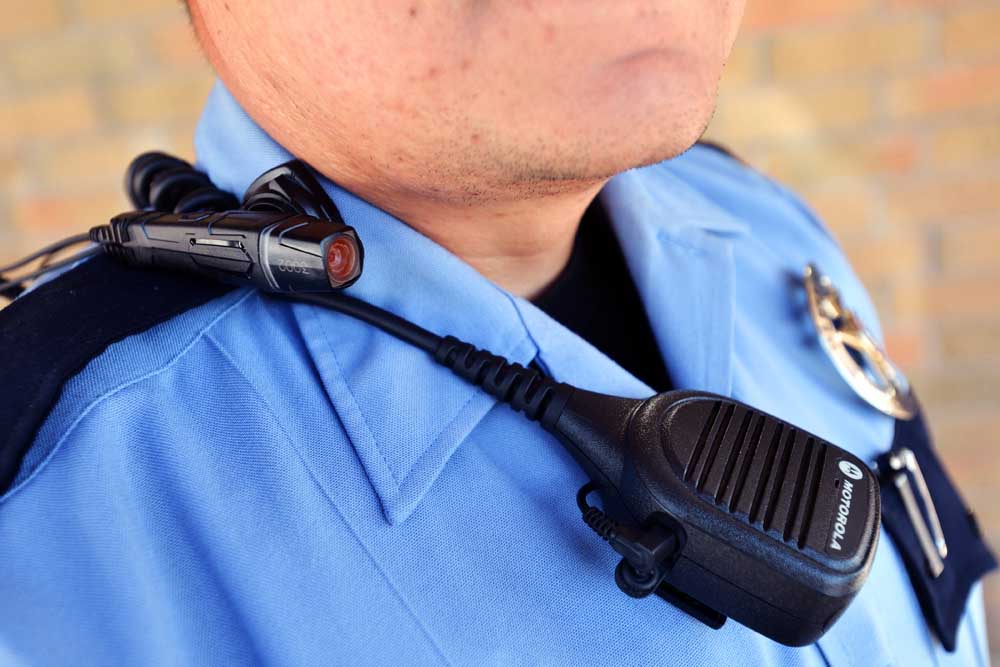House passes police body cam legislation
Published 12:10 pm Tuesday, May 5, 2015

- The Hermiston Police Department has issued lapel-mounted body cameras to all of its patrol officers. A bill before the Oregon House sets uniform rules for the use of police body cams and the videos they produce.
SALEM — The Oregon House has taken the first step toward regulating how police use body cameras to record their interactions with the public.
Trending
A House vote of 50-9 on Tuesday sent House Bill 2975 to the Senate.
The Columbia County sheriff and Hermiston police have decided to equip their officers with body cameras, and Portland is considering it. Mayor Charlie Hales has endorsed the idea, but equipping the larger Portland police force would be more costly.
Locally, the Astoria budget committee tentatively backed funds for body and vehicle cameras for police.
Trending
“We know this technology is new,” said Rep. Jennifer Williamson, D-Portland, the bill’s floor manager. “So I think this is a solid start. I look forward to seeing the policies that agencies develop in their communities.”
However, the bill does not require police to use them.
Under the bill, officers can activate cameras “continuously” upon reasonable suspicion or probable cause that a crime or violation is being committed. The camera can be turned off once an officer’s participation ends.
Officers must announce a body camera is in use, but agencies can make exceptions based on privacy, public safety or “exigent circumstances,” such as when an officer attempts to thwart someone from committing a crime or interviews a vulnerable witness.
Although the bill would shield most police video from disclosure — similar to video shot from cameras mounted in patrol cars — it does provide an exception if public interest in disclosure outweighs the need to withhold it.
“I am not sure who is going to determine that,” said Rep. Carl Wilson, R-Grants Pass, a broadcaster who voted against the bill.
Ultimately, a judge would determine what is in the “public interest,” which is a common legal balancing test applied to materials under Oregon’s public records law.
But requests must be“reasonably tailored”to the approximate date and time of an incident, and the video must be edited to make all faces unrecognizable.
Oregon law bars agencies from disclosing photographs of officers without their consent, although agencies themselves can use them.
Rep. Lew Frederick, D-Portland, said the bill is not meant to single out police conduct.
“It’s also because everybody behaves better when they are on camera,” said Frederick, a former television reporter and the only black member of the House.
“What has been shown in communities across the country where these devices have been used is that both complaints and the types of incidents that lead to complaints are reduced.”
The House also passed a companion bill that makes it clear it is legal for people to record a conversation with a police officer performing official duties in a public place.
“It does not give permission to anyone to interfere with police work,” said Frederick, the bill’s chief sponsor. “It only allows people to record a conversation that they are already permitted to hear.”
While Oregon law already allows film or video of such encounters, the bill allows an exception to a longstanding ban under which a third party cannot record a conversation without consent of either participant. Already exempted from that ban are recordings made at public meetings.
Police have raised questions about whether the bill would allow others to eavesdrop on undercover operations or interviews with witnesses.
Rep. Jeff Barker, D-Aloha, said the bill’s language would be further changed in the Senate to foreclose those possibilities.
“We just need to straighten out this little piece of the law so that it’s all legal,” said Barker, a retired Portland police lieutenant.
House Bill 2704 moved to the Senate on a 51-8 vote.
The Capital Bureau is a collaboration between EO Media Group and Pamplin Media Group.









